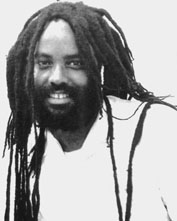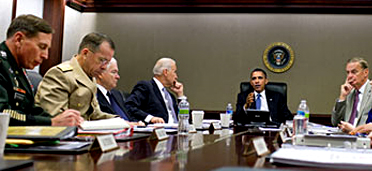“I would unite with anybody to do right and with nobody to do wrong.”
–Frederick Douglass
On the evening of February 25, participants at the Fourth World Congress Against the Death Penalty in Geneva, Switzerland had assembled from all over the globe for a dramatic Voices of Victims evening. It got more dramatic than they had anticipated though, when suddenly a cell phone rang and Robert R. Bryan, lead defense attorney for Mumia Abu-Jamal, jumped up on the stage to announce that his client had called him from death row in Pennsylvania.
The audience sat in rapt silence as the emcee held the phone up to the microphone. Abu-Jamal, on death row for 28 years after a widely disputed conviction for the murder of Philadelphia police officer Daniel Faulkner, greeted the delegates and then, as he has done on many occasions before, described to them the horrors of life in prison for the 20,000 people around the world who are awaiting execution.
A small group of American death penalty abolitionist leaders, led by Renny Cushing, executive director of Murder Victims’ Families for Human Rights, stalked out of the hall. Two members of MVFHR, however, remained in the hall: Bill Babbitt, whose brother Manny, a Vietnam vet suffering acute post-traumatic stress disorder, was executed in California; and Bill Pelke, whose grandmother was murdered by a girl whom he later befriended and helped to spare from execution. Babbitt even joined Bryan onstage during Abu-Jamal’s brief address.
 Mumia Abu-Jamal
Mumia Abu-Jamal
What neither Babbitt nor Pelke, nor Abu-Jamal and his attorney, Bryan, knew at the time was that way back in December, leaders and individual board members of several of the organizations in the US abolitionist movement had signed–without their full boards’ or their memberships’ knowledge–a “confidential” memorandum, which they then sent to the French organizers of the World Congress, stating bluntly that, “As international representatives of the US abolition movement, we cannot agree to the involvement of Abu-Jamal or his lawyers in the World Congress beyond attendance.”


